Gravity is one of the four fundamental forces of nature. That controls the movement and interactions of planets and other celestial bodies. Jupiter, the largest planet in our solar system, is a gas giant. Its immense size means that its gravitational field is significantly stronger than Earth’s. Specifically, Jupiter’s gravitational pull is 2.4 times that of Earth, with a gravitational field strength of approximately 24.79 m/s² compared to Earth’s 9.81 m/s².
This gravity affects motion in many ways: walking on Jupiter would be very hard due to the increased gravity and jumping would result in much lower heights and shorter duration of flight compared to Earth. And escape velocity, the minimum speed required for an object to break free from a celestial body’s gravity, is much higher on Jupiter at about 59.5 km/s compared to Earth’s 11.2 km/s. So a spacecraft would need to go much faster to escape Jupiter’s gravity. As a result, objects on Jupiter weigh much more than they do on Earth. Understanding Jupiter’s powerful gravity is crucial for space exploration and the study of our solar system.
How strong is gravity on Jupiter?

Jupiter’s gravity is 23.9 m/s², making it about 2.4 times stronger than Earth’s gravity of 9.806 m/s². This means that objects weigh significantly more on Jupiter; for example, a 100-kilogram object on Earth would feel like it weighs around 240 kilograms on Jupiter.
The reason for this strong gravity is Jupiter’s massive mass, which is approximately 1.8986×10²⁷ kilograms about 317.8 times that of Earth. With a radius of around 69,111 kilometers, Jupiter is 10.97 times larger than Earth. However, despite being one of the four gas giants, Jupiter has a mean density of only 1.326 g/cm³, which is much lower than Earth’s 5.51 g/cm³, meaning Jupiter’s density is roughly 24% that of Earth’s. This difference in density stems from their compositions: Jupiter is mostly gaseous, while Earth is rocky.
Overall, the significant increase in weight on Jupiter underscores the effects of its stronger gravity, resulting from its vast mass and size. This powerful gravitational force poses challenges for landing and operating spacecraft on or near the planet, showing the clear differences between its gravity and that of Earth.
What is Jupiter’s Gravitational Field Strength?
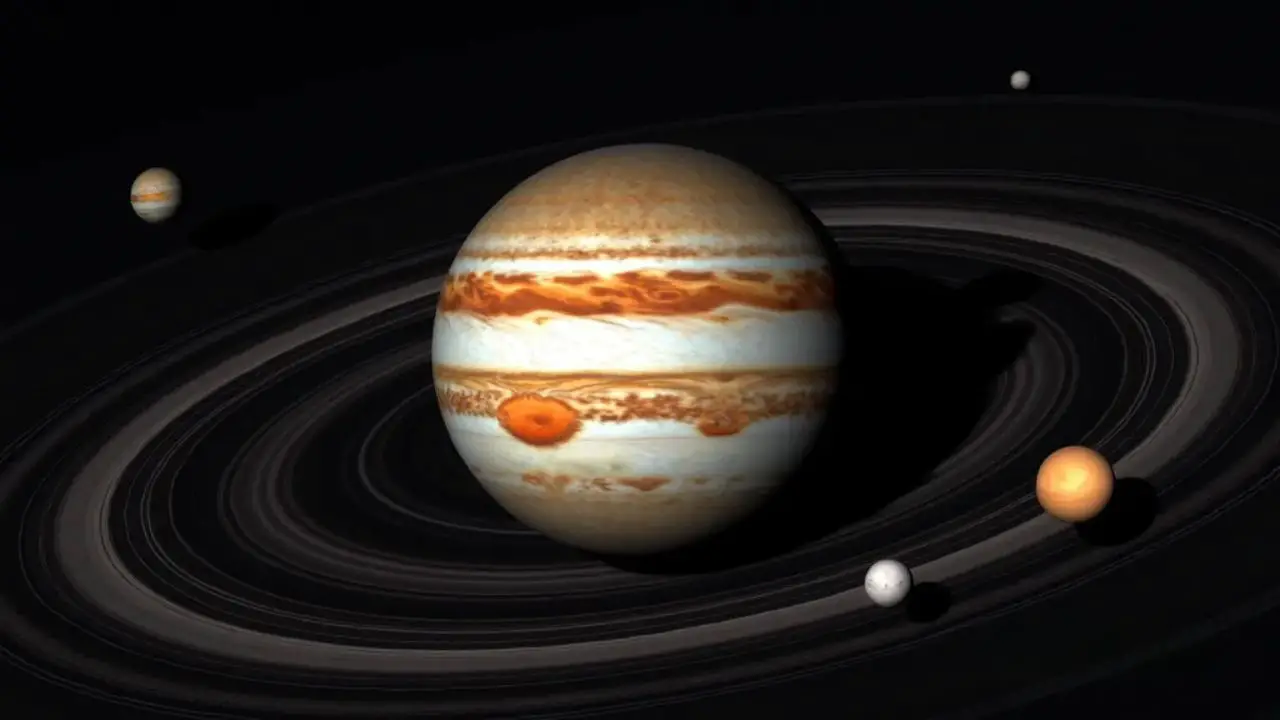
The gravitational force on Jupiter is around 24.787 m/s².This means, if you stood on Jupiter you would feel objects weigh nearly 2.4 times their weight on Earth. For example, if you weigh 100 kilograms on Earth, it would feel like you weigh about 240 kilograms on Jupiter due to its strong gravitational pull. Therefore, you would experience the weight of 2,470 kilograms on Jupiter. This massive increase in weight describes how powerful Jupiter’s gravity is. It completely changes the way we feel weight on the planet, making everything feel much heavier than it does on Earth.
Which planet has the strongest gravity?
Jupiter has the strongest gravity in the solar system due to its massive size, which is more than 2.5 times the mass of all other planets combined. Its rapid rotation and dense composition further contribute to its gravitational strength.
What Makes Jupiter’s Gravity So Strong?
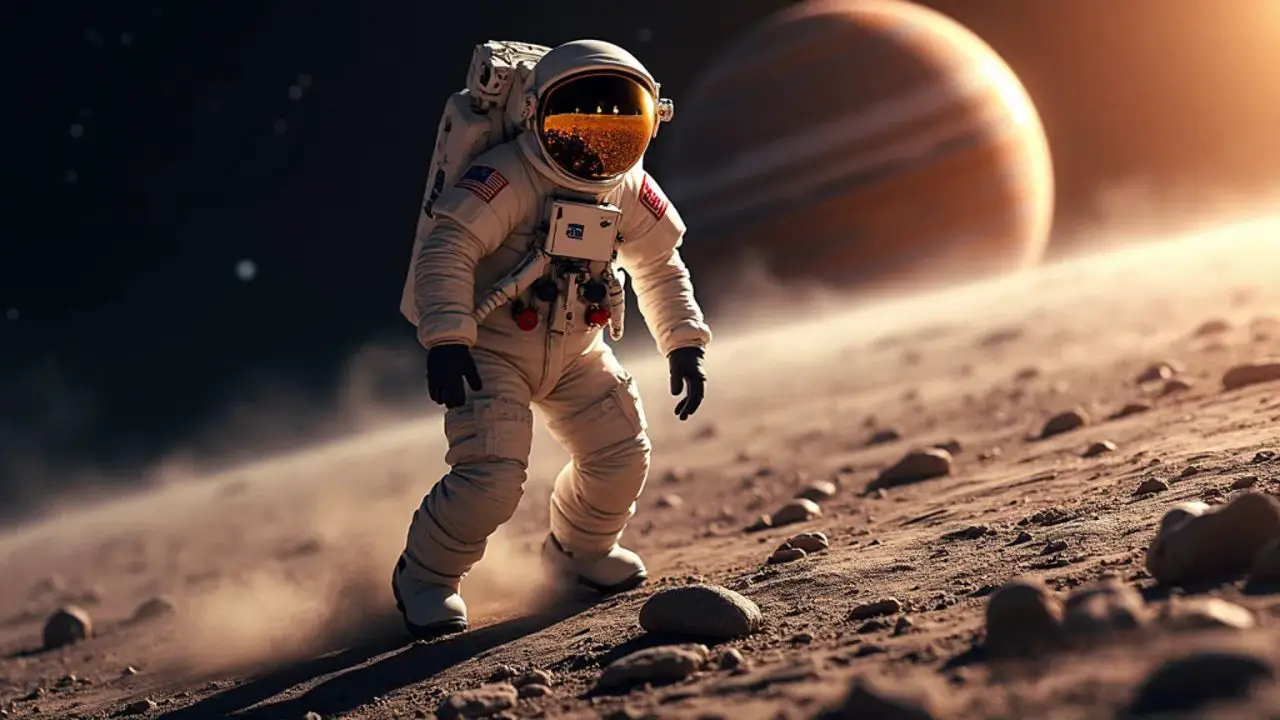
Jupiter has a strong force of gravity due to several reasons. One of the foremost causes is that it is the largest planet in the solar system, comprising a mass more than 2.5 times that of all other planets combined, resulting in 317 times the weakening of Earth’s gravity. It is formed out of dense gasses such as hydrogen and helium that are present in its center resulting in addition to its mass. Studies suggest it has a solid core 20 times greater than the Earth. Last but not least, it has rapid rotating movement. Under just 9.64 hours it completes a spin that evenly distributes its gravity. All combined, these mentioned aspects add the elements of strength to Jupiter’s gravity.
What is the gravitational force between Earth and Jupiter?
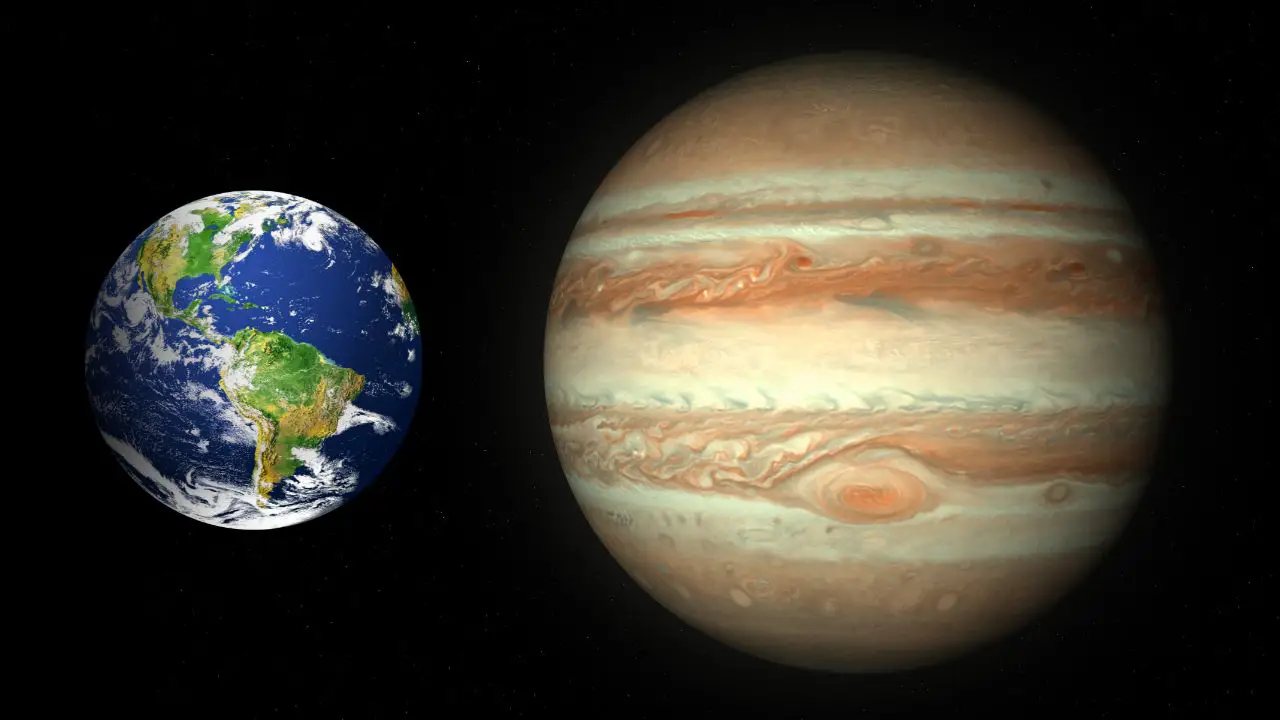
The gravitational force varies between Earth and Jupiter according to their position in their orbits. It’s stronger when they are closest and weaker when they are far apart.
To calculate this gravitational force, we use Newton’s law of universal gravitation:
F = G(m1m2)/R2
Where,
F is the gravitational force.
G is the gravitational constant,
and m1 and m2 are the masses of Earth and Jupiter, respectively.
R is the distance between the centers of the two planets.
Values:
Mass of Earth,
🔬 Subscribe to SciMail
Get the latest science discoveries straight to your inbox!
m1= 6 × 10^24 kg
Mass of Jupiter,
m2= 1.9 × 10^27kg
Distance between Earth and Jupiter,
r=6.2 × 10^11 meters
Gravitational constant,
G= 6.67 × 10^11N m^2/kg^2
Calculation:
By plugging in these values:
F= (6.67 × 10^-11) ⋅ (6 × 10^24) ⋅ (1.9 × 10^27)
_________________________________________________
(6.2 × 10^11)^2
This calculation gives a gravitational force of about 1.97 x 10^{18} newtons when Earth and Jupiter are closest. The force may seem small to us, compared with what we are familiar with on Earth, but it is still significant in the dynamics of our solar system.
Can Jupiter’s Gravity Influence Its Atmosphere?
Jupiter’s mass influences its atmosphere and the solar system. It has greater gravity, 2.5 times that of the Earth’s gravity, and thus has a thick layer of atmosphere mainly composed of hydrogen and helium rather than lighter gasses. Jupiter’s strong gravitational pull helps maintain this thick atmosphere while compressing the lower layers, affecting storm dynamics like the Great Red Spot.
What Effect Does Jupiter’s Gravity Have on the Earth?
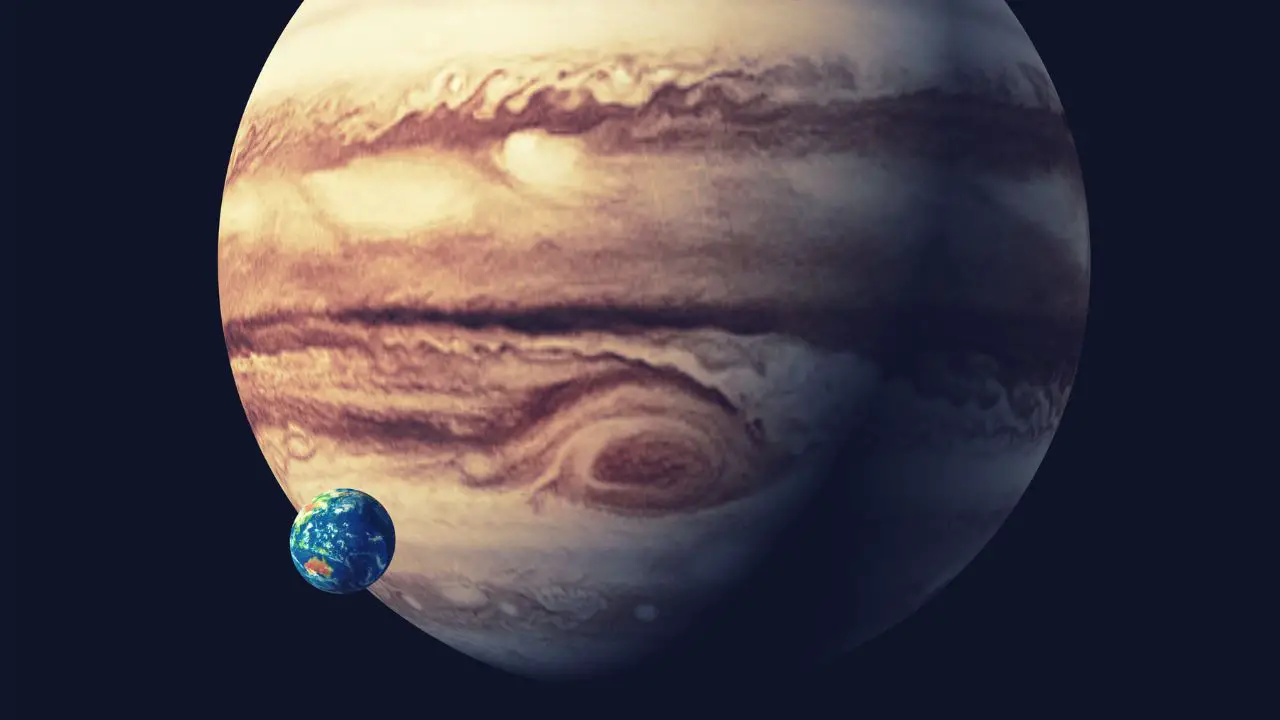
Jupiter’s gravity has a significant impact on Earth. It protects our Earth by pushing away or capturing comets and asteroids, which reduces the chance of collisions. Additionally, Jupiter’s gravity influences Earth’s orbit and climate over long periods. Every 405,000 years, the interaction between Jupiter and Venus causes small changes in Earth’s orbit, which affects weather patterns. This helps keep the solar system stable and supports the conditions needed for life on Earth.
Could Jupiter’s Gravity Affect Other Planets in the Solar System?
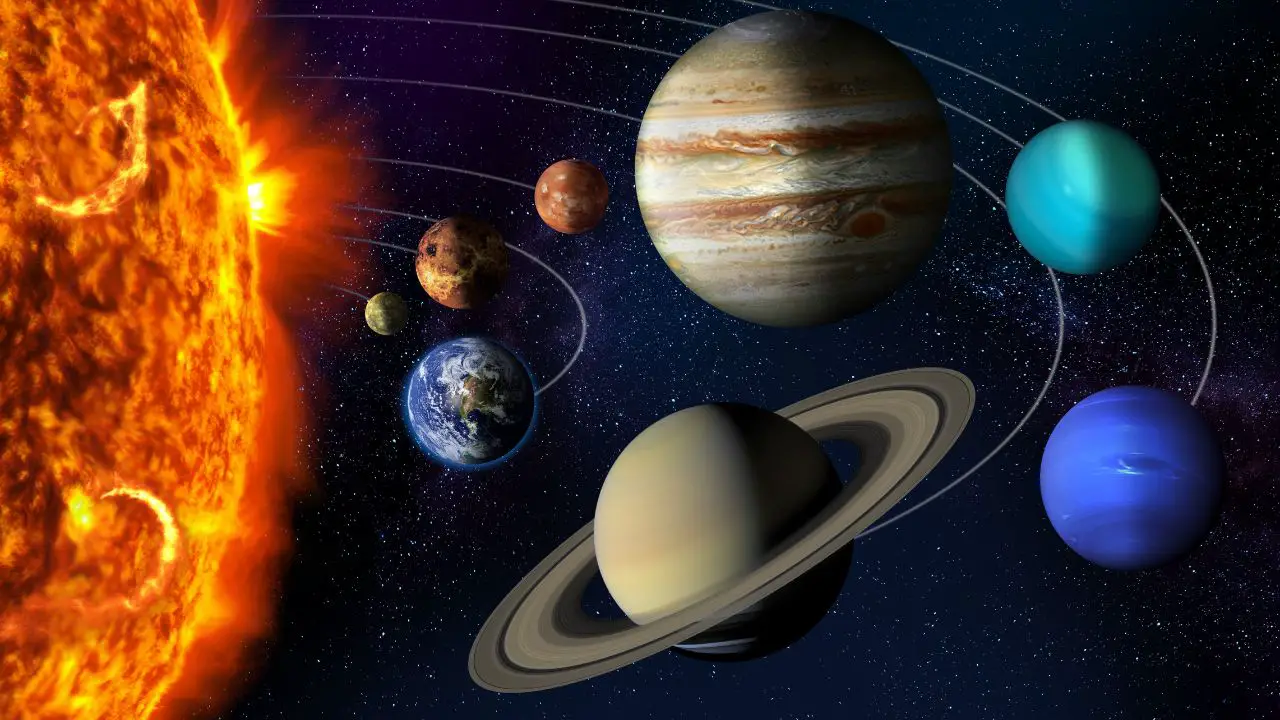
Jupiter’s gravity greatly impacts the other planets in our solar system because of its enormous size. As the largest planet, it helps guide the orbits of nearby planets like Earth and Mars, ensuring they follow a stable, circular path. This gravitational influence is essential for keeping the solar system balanced. Jupiter also plays a crucial role in the asteroid belt, its gravity helps hold the belt together while sometimes nudging asteroids into new orbits. Jupiter’s powerful gravitational force shapes how our solar system works and changes over time.

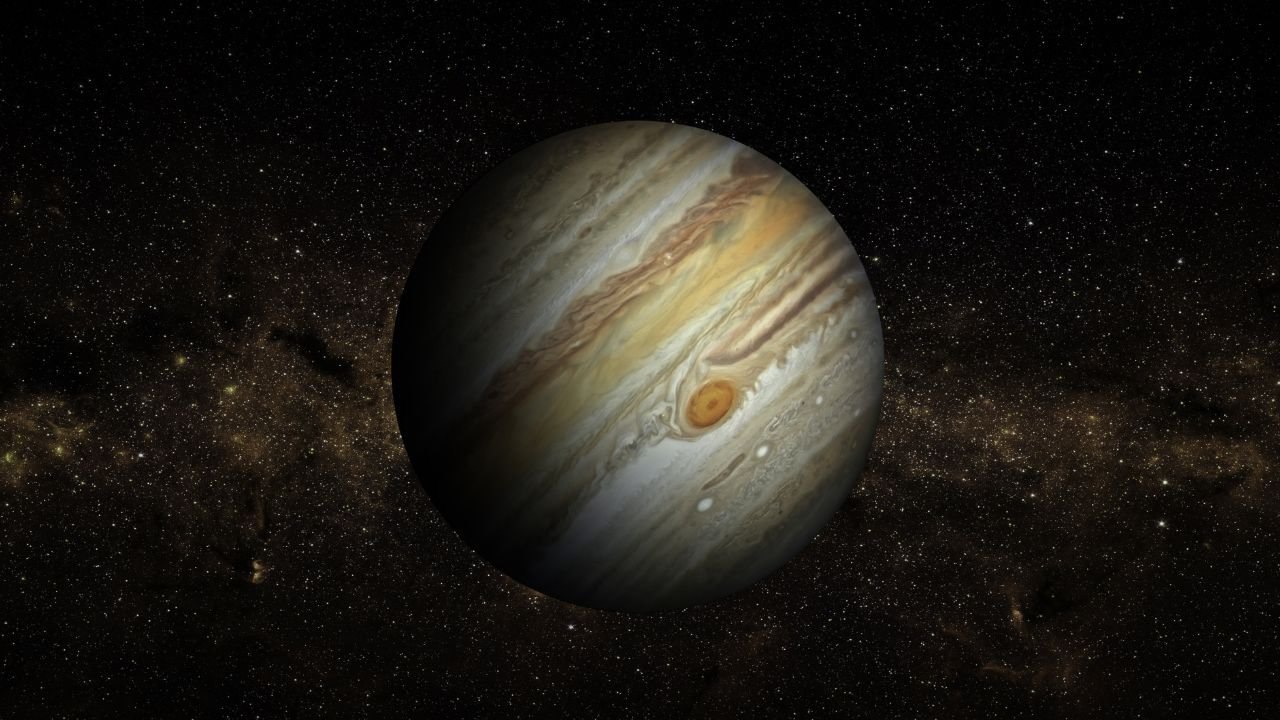
Leave a Reply